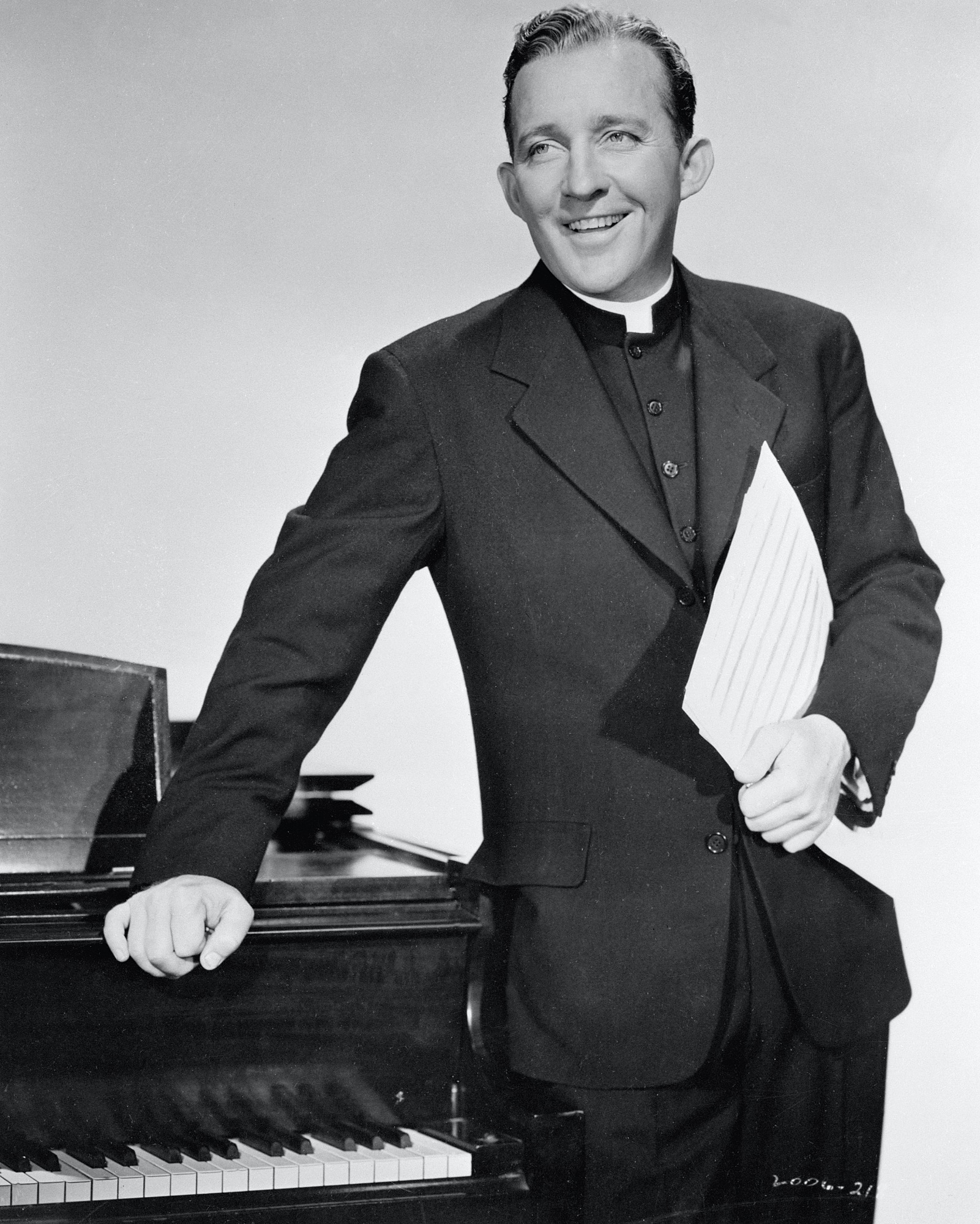
- Golden Globe Awards
1945: “Going My Way” Makes a Star of Bing Crosby

On April 16, 1945, as a festive Hollywood crowd gathered in the Terrace Room at the Beverly Hills Hotel, the end of World War II in Europe was only three weeks away. There was a feeling of relief in the air, of hope and happy endings.
And the celebration of films of the previous year was a reflection of this mood: the musical comedy Going My Way was the undisputed favorite of the Golden Globes gala of 1945, honored with the Best Film trophy in addition to picking up prizes for Barry Fitzgerald as Best Supporting Actor and Leo McCarey as Best Director.
The film’s global appeal lay in its unabashed emphasis on love. It was not so much about love between the sexes but rather the unselfish humanity found within any fellow man and woman, a message that resonated powerfully in a world torn apart. And it showed — equally significant at the time — that there was a transition possible, a path from the old ways to new beginnings.
Going My Way centers on young Father Charles “Chuck” O’Malley (Bing Crosby), who is transferred to St. Dominic’s Church in New York City, the domain of the elderly, very traditional Father Fitzgibbon (Fitzgerald). Generational tensions are slowly smoothed by growing mutual respect, channeled in part through six songs by Crosby and opera diva Risë Stevens.
Toward the end, O’Malley gets a new assignment. As a going-away present, he sends for Fitzgibbon’s aging mother (Adeline De Walt Reynolds) from Ireland. As mother and son embrace for the first time in 45 years, the choir sings the Irish lullaby “Too-Ra-Loo-Ra-Loo-Ral,” and Father O’Malley quietly slips away into the night.
For audiences everywhere, there was not a dry eye in sight. Going My Way was the highest-grossing film of 1944, and it established Crosby as the biggest box office star on the planet.

